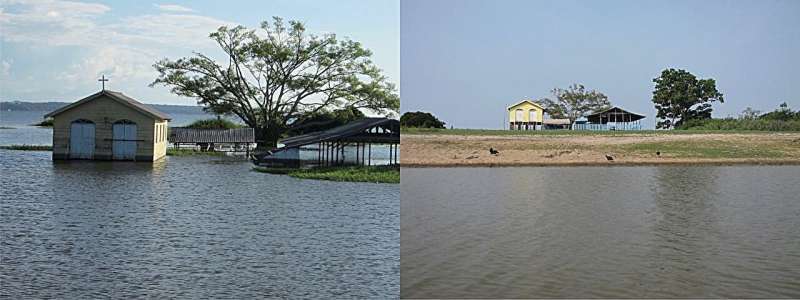The Amazon Rainforest, the world’s largest tropical forest, plays a critical role in regulating global greenhouse gas emissions. However, a recent study suggests that climate change could disrupt the delicate balance of methane production and uptake in this vital ecosystem. The Amazon Rainforest is home to a diverse array of microbial communities that contribute to the cycling of methane, a potent greenhouse gas. The findings of this study highlight the importance of effective conservation and management policies to mitigate the potential global impacts of these changes.

Examining the Impact of Climate Change on Methane Dynamics
Researchers at the University of São Paulo (USP) in Brazil have conducted a groundbreaking study that sheds light on how climate change can alter the delicate balance of methane emission and uptake in the Amazon Rainforest.
The study, published in the journal Environmental Microbiome, reveals that extreme temperatures and humidity levels projected for the Amazon due to climate change may have significant implications for the region’s methane-cycling microbiome. Specifically, the researchers found that while the floodplains in the Amazon are expected to see an increase in methane-producing microorganisms, the upland forests may experience a 70% reduction in their ability to consume methane, leading to a potential spike in greenhouse gas emissions.
Uncovering the Complexities of Methane Cycling in the Amazon
The Amazon Rainforest is a complex and dynamic ecosystem, with a vast network of floodplains that account for a significant portion of global wetland methane emissions. On the other hand, the region’s upland forests play a crucial role in regulating greenhouse gas emissions by acting as methane sinks, capturing the gas from the atmosphere.
The study conducted by the USP researchers sought to understand how these delicate balances might be disrupted by the projected changes in rainfall and temperature patterns brought on by climate change. By subjecting soil samples from the Amazon’s floodplains and upland forests to extreme temperatures and humidity levels, the researchers were able to observe the responses of methane-producing and methane-consuming microorganisms.
Implications for Global Climate Change and the Importance of Conservation
The findings of this study have far-reaching implications for the global climate. The Amazon Rainforest, which covers an area of over 2.1 million square miles, is a vital carbon sink and plays a crucial role in regulating greenhouse gas emissions worldwide. Any significant changes to the methane cycling in this region could have profound impacts on the global climate.
The researchers emphasize that effective conservation and management policies are essential to mitigate the potential risks posed by these changes. By better understanding the complex interplay between climate change, microbial communities, and methane dynamics, policymakers and environmental stakeholders can develop strategies to protect this vital ecosystem and its role in global climate regulation.
